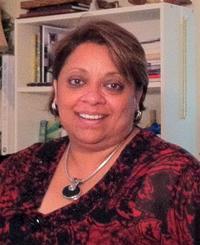 Thursday, April 24, 2014
Thursday, April 24, 2014 “[International education] …is not just about education.
This is about the economy, immigration, our innovation,
and our overall capacity to succeed as an economy.
So it isn't just about education.”
(Bob Rae, Former Party Leader of Liberal Party of Canada and Former Premier Province of Ontario, Interview, May 27, 2011).
International education, formerly viewed as a nation’s “soft power” strategy engaged federal governments through their responsibility for international diplomacy and foreign relations. This policy approach has now diversified to a revenue generating approach, skilled migration approach and a capacity building approach, and is increasingly linked to national economic success and prosperity, thus intensifying the need for a more targeted and coordinated role for national governments. In January 2014, the Canadian federal government took an unprecedented step and announced its first ever international education policy, Canada’s International Education Strategy: Harnessing Our Knowledge Advantage to Drive Innovation and ProsperityIn the U.S. , although the Department of Education announced its first–ever international strategy in November 2012, Succeeding Globally Through International Education and Engagement, the absence of a comprehensive and clearly laid out national strategy is lamented. This talk will map the historic similarities and differences in the federal governments involvement in international education in the U.S. and Canada; two jurisdictions in which the role of the federal government in higher education is highly circumscribed. It will highlight the contributions and challenges of the federal government’s involvement in international education in the two federal states and in particular, explore the implications of the changing contexts, rationales and approaches for international education to the federal role in higher education and to higher education policy development.
BIOGRAPHY
Roopa Desai Trilokekar is an Associate Professor (Postsecondary Education) Faculty of Education, at York University, Toronto, Canada. She has published extensively on government policy and international education and is co-editor of Canada’s Universities Go Global (2009), (with Adrian Shubert, York University, and Glen Jones, University of Toronto) and Making Policy in Turbulent Times; Challenge and Prospects for Higher Education (2013)(with Paul, Axelrod, Theresa Shanahan, and Richard Wellen, York University). Two articles of interest include: "IMAGINE: Canada as a leader in international education. How can Canada benefit from the Australian experience?" Canadian Journal of Higher Education (2013) and "International Education as Soft Power?" "The Contributions and Challenges of Canadian Foreign Policy to the Internationalization of Higher Education", Higher Education, (2010).
Her previous experience includes administrative positions in the Office of the Associate Vice President International at York University and Ryerson University in Toronto and with the Fulbright Office in Mumbai India.
